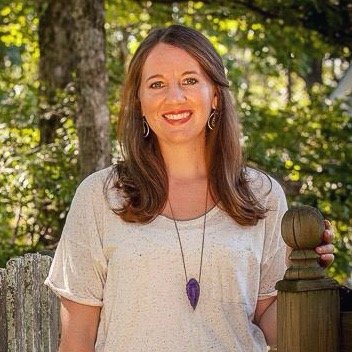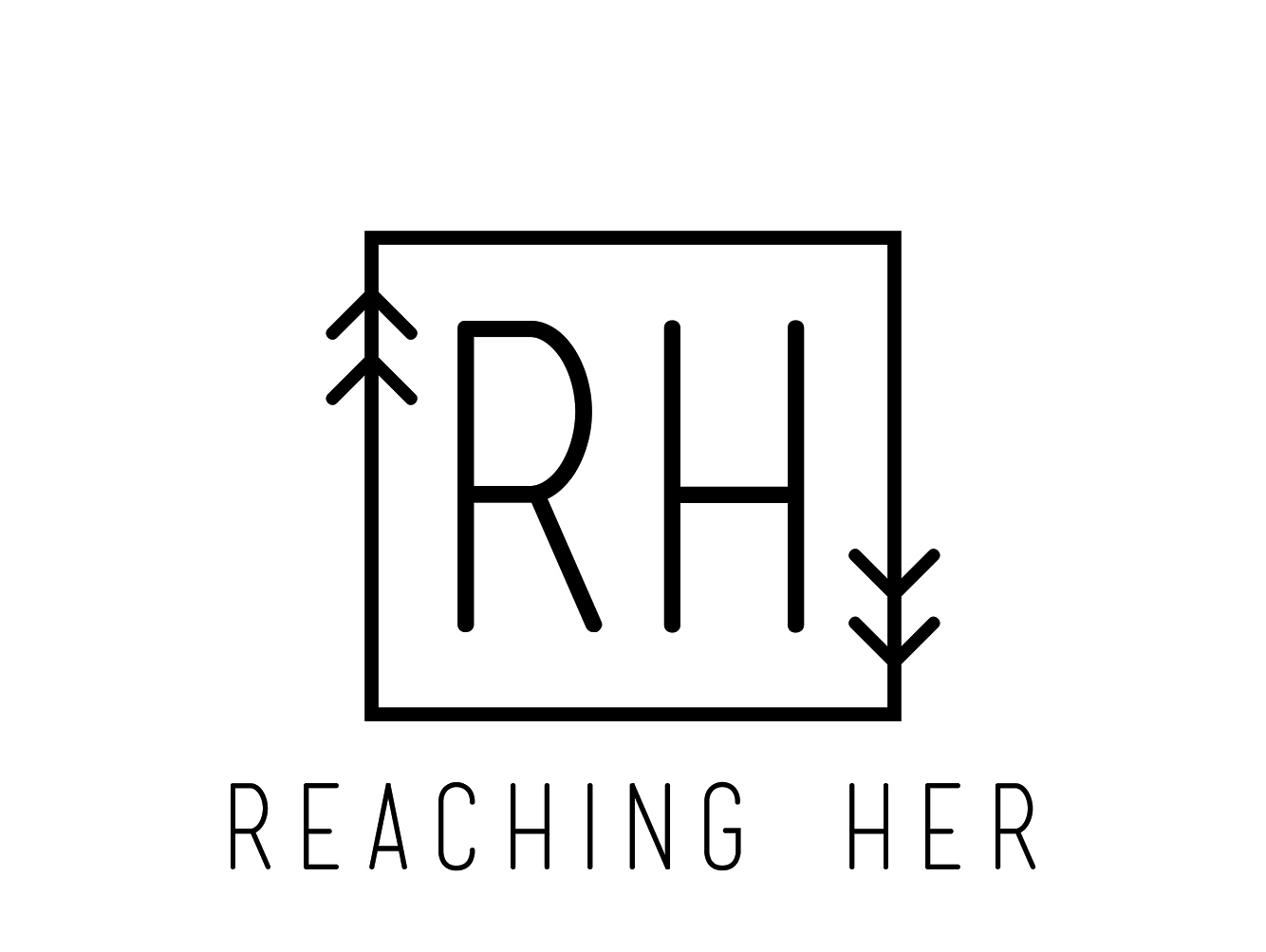Sinking To The Depths Of Despair
“...the hand of the Lord has gone out against me.” Ruth 1:13“Do not call me Naomi; call me Mara, for the Almighty has dealt very bitterly with me.” Ruth 1:20
“I went out full, but the Lord has brought me back empty.” Ruth 1:21
The depths of despair.
That’s the only phrase I could come up with as I grappled with Naomi’s perspective in Ruth chapter 1. I borrowed it from my favorite childhood book, Anne of Green Gables, as I remembered the precocious and dramatic Anne crying out on many occasions that she had tumbled into the depths of despair either from accidentally dying her hair green or being torn from her kindred spirit and best friend Diana Barry. I also remembered as a precocious but more logical nine year old that I didn’t quite grasp the concept - the depths of despair? It seemed more like a humorous dramatism of reality than something an actual person experienced.
Then one day I got slammed in the face with the depths myself. It was my junior year in college, and I has just lost my first (and I had hoped my last) love. In an all too cliche way I descended far into the lowness of my emotions and didn’t resurface for a while. Everything seemed to be colored with a murky haze, and it was hard to move through life. I couldn’t see the Lord because all I saw was my hurt. Looking back, that was the moment when I knew the depths of despair was a very real place.
Whether it is Naomi’s telling emotional expressions here in Ruth chapter 1 or my own encounter with the depths of despair, I noticed a similarity that I believe a lot of women experience all too often. When life hits us hard, when we experience poor circumstances, the character of God and our own identities get clouded by a sea of negative emotion. The cloud is so thick and so real-feeling that it is hard to see what is true. God doesn’t feel near, so that is what we believe. And we join the Naomis of the world by trading the name God has given us for bitterness.
If you, like me, can understand the depths of despair, but you’re sick of landing there time and time again, then let’s look at Ruth chapter 1 together, and let’s ask a question: How did Naomi end up there?
I think it started with one seemingly small (and culturally pragmatic) choice. We see Naomi go with her husband and two sons to sojourn in a nation that God had warned them against. They choose security and comfort during a famine over being obedient to God. Then Naomi chooses to stay in that land after her husband dies. Then her two sons wrongly intermarry within the pagan people of that God-forewarned nation, and Naomi stays yet again. And, then when her two sons die, she finds herself very far away from everything - her home, her family, her God.
And all Naomi can see is where she finds herself - alone with nothing. Sounds like a good time to embrace the depths of despair. So, that’s exactly what she does.
“...the hand of the Lord has gone out against me.” Ruth 1:13
“Do not call me Naomi; call me Mara, for the Almighty has dealt very bitterly with me.” Ruth 1:20
“I went out full, but the Lord has brought me back empty.” Ruth 1:21
I can’t blame Naomi for feeling such a depth of emotion. It’s truly her honest perspective. But, what I noticed is that she is very quick to get clouded by the emotions she is experiencing by blaming God instead of recognizing it is her sin that got her there. I want to shout, “Hey Naomi! You’re a FOOL! God didn’t do this to you - YOU DID IT TO YOURSELF! It’s so blatant!”
But maybe it’s so apparent to me because I’m not there with her in the depths. I’m separated from the emotional. When I look back at my own experience - when I lost that love and descended myself - didn’t I do the same thing? Didn’t I blame the Lord, demand why, and never take the opportunity to be introspective? Didn’t I miss the chance to see if God was trying to show me something about myself?
Sin can make me so very shortsighted.
I didn’t realize until a lot later that some of the choices I made before and during that oh-so-important relationship were not God honoring and were incredibly selfish. All of those choices were centered on my own happiness, a guy, and how to create as much control over my future as possible. And before I had even realized it, my own needs and that relationship had taken on idol status in my heart to the neglect of my Savior. I was too sucked in to realize it myself that when the relationship ended, all I could see were the shattered pieces of my sad life instead of a God given opportunity to choose Him instead.
Just like Naomi, a series of what I saw as small or insignificant sins led me to a place where I couldn’t see God. My self-created cloud of negative emotions encircled me there in the depths and became my truth.
That’s what happens, my dear friends, when you choose death instead of life.
Last week Hannah pointed us to Deuteronomy 31:15, “...so choose life that you may live.”
What I experienced, what Naomi is experiencing in chapter 1, that is not living. Stewing in a slew of negative emotions, poor circumstances, and unconfessed sin is to stay stagnant. It is choosing death instead of life. And, that is not what God wanted for Naomi, and it isn’t what He wants for me or you.
Jesus said it best himself in John 10:10:
“I came that they may have life and have it abundantly.”
If Jesus came that I may have abundant life, then I have to be very careful when it comes to my emotions. When I find myself sliding down into the depths of despair, I have to get on my knees and be open with what I am feeling and experiencing:
“Lord (this) is what I am feeling and experiencing. Is this real? Is what I am experiencing based on emotion or your Truth? Is it because of my sin? Show me so that I might confess it. I want to choose Life and Truth. Reveal your Truth to me.”
David, the King of the honest prayer, models this for us over and over in the Psalms. He had so many reasons to be in the depths of despair (running away from a crazy king in the wilderness, hiding in caves, murderous plots against his life, sleeping with Bathsheba and plotting the murder of her husband - you get the picture), and He was extremely forthright with God about his emotions during all of what he experienced.
“How long, O Lord? Will you forget me forever? How long will you hide your face from me? How long must I take counsel in my soul and have sorrow in my heart all the day? How long shall my enemy be exalted over me?” Psalm 13:1-2
But as honest as David is with his emotions, he always brought it back to Truth:
“But I have trusted in Your steadfast love; my heart shall rejoice in Your salvation. I will sing to the Lord, because He has dealt bountifully with me.” Psalm 13:5-6
David’s choice to end with truth shows me his perspective changed as he cried out to the Lord. What an encouraging concept! Yes, the emotions may still be there, but they dim and are rendered ineffective by holding onto the solid Truth of who God is and how He sees us.
These days I find myself very far from that junior in college who was living in that murky haze. It’s not that I don’t experience my share of negative emotion. Being a woman in general and living in this world means I will be emotional. But when those days come, I choose to have a different perspective when I feel myself descending. Being a child of God means that my emotions have to be grounded in the truth of who God is, how He sees me, and who I am as a result.
So that when the cloud of negative emotion inevitably begins to form, and I feel myself sinking, I recall to mind what I know to be true, and I hold on.
And, you may not believe it based on her sentiments in Ruth chapter 1, but Naomi is coming around to Truth as well. Even though she has a wrong perspective of where she finds herself, she does choose to do one thing that will make all the difference. She goes back to her home and to her God. She goes back to Truth.
What a great beginning.
“Because of the Lord’s great love we are not consumed, for his compassions never fail. They are new every morning; great is your faithfulness. I say to myself, “The Lord is my portion; therefore I will wait for him.”” (Lamentations 3:22-24)
 Amy Bufkin has loved Jesus for as long as she can remember. Even though she basically lived at her local church growing up, her faith and relationship with The Lord was incredibly shallow until her early twenties. It was then Amy learned how to study her Bible, began to truly commune with God, and her shallow faith began to deepen as she got to know her Lord and Savior. Now her passion is to communicate the same truths that changed her life to young women in as many ways as possible. You can find her on Instagram | Facebook
Amy Bufkin has loved Jesus for as long as she can remember. Even though she basically lived at her local church growing up, her faith and relationship with The Lord was incredibly shallow until her early twenties. It was then Amy learned how to study her Bible, began to truly commune with God, and her shallow faith began to deepen as she got to know her Lord and Savior. Now her passion is to communicate the same truths that changed her life to young women in as many ways as possible. You can find her on Instagram | Facebook


